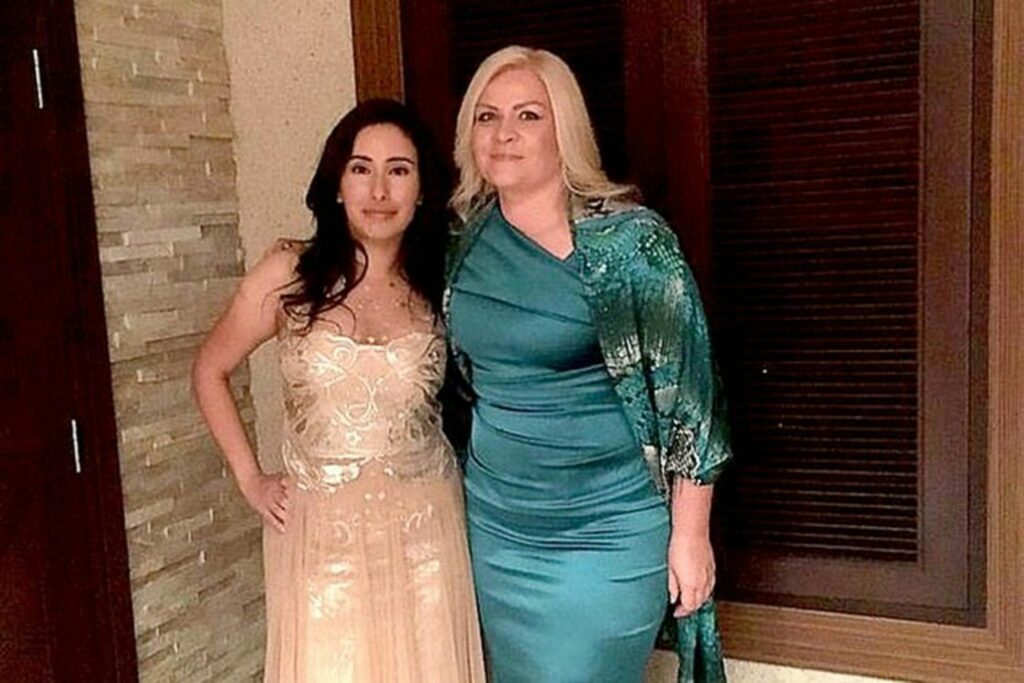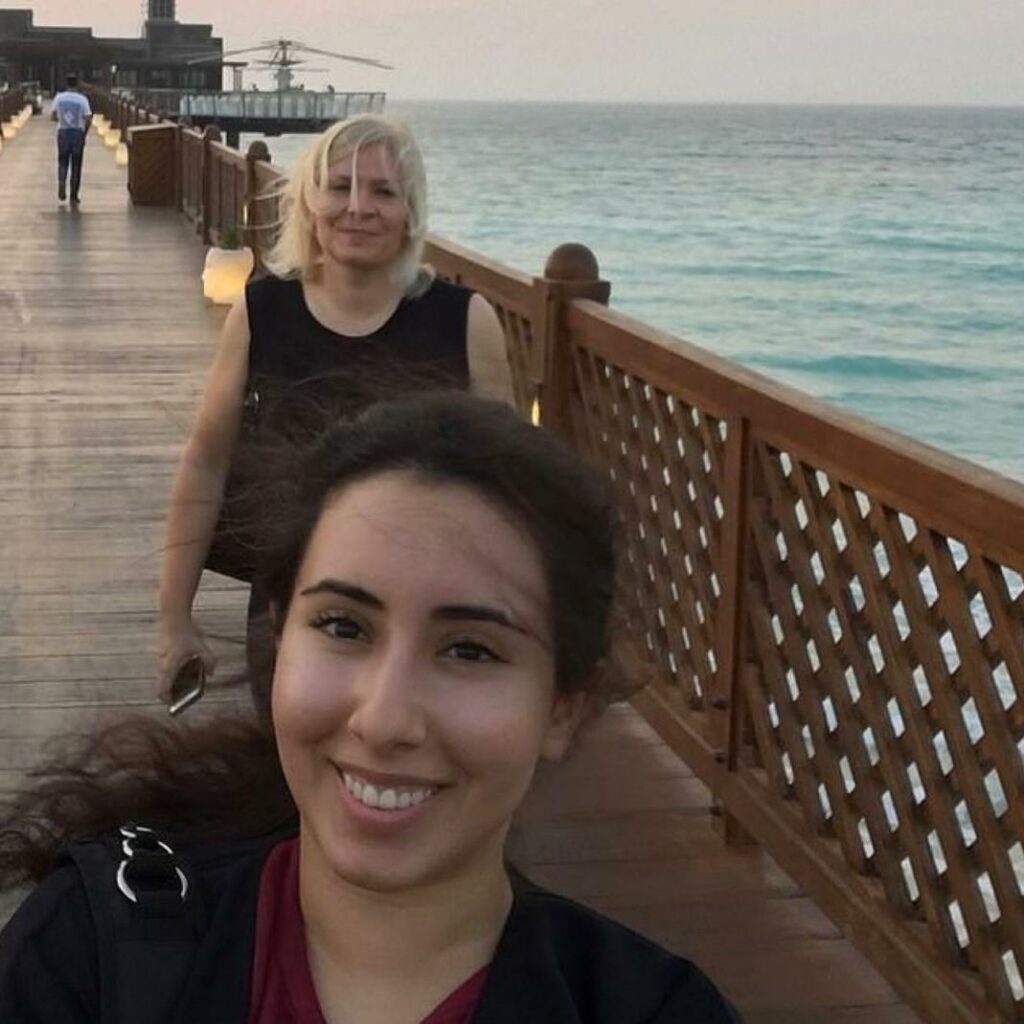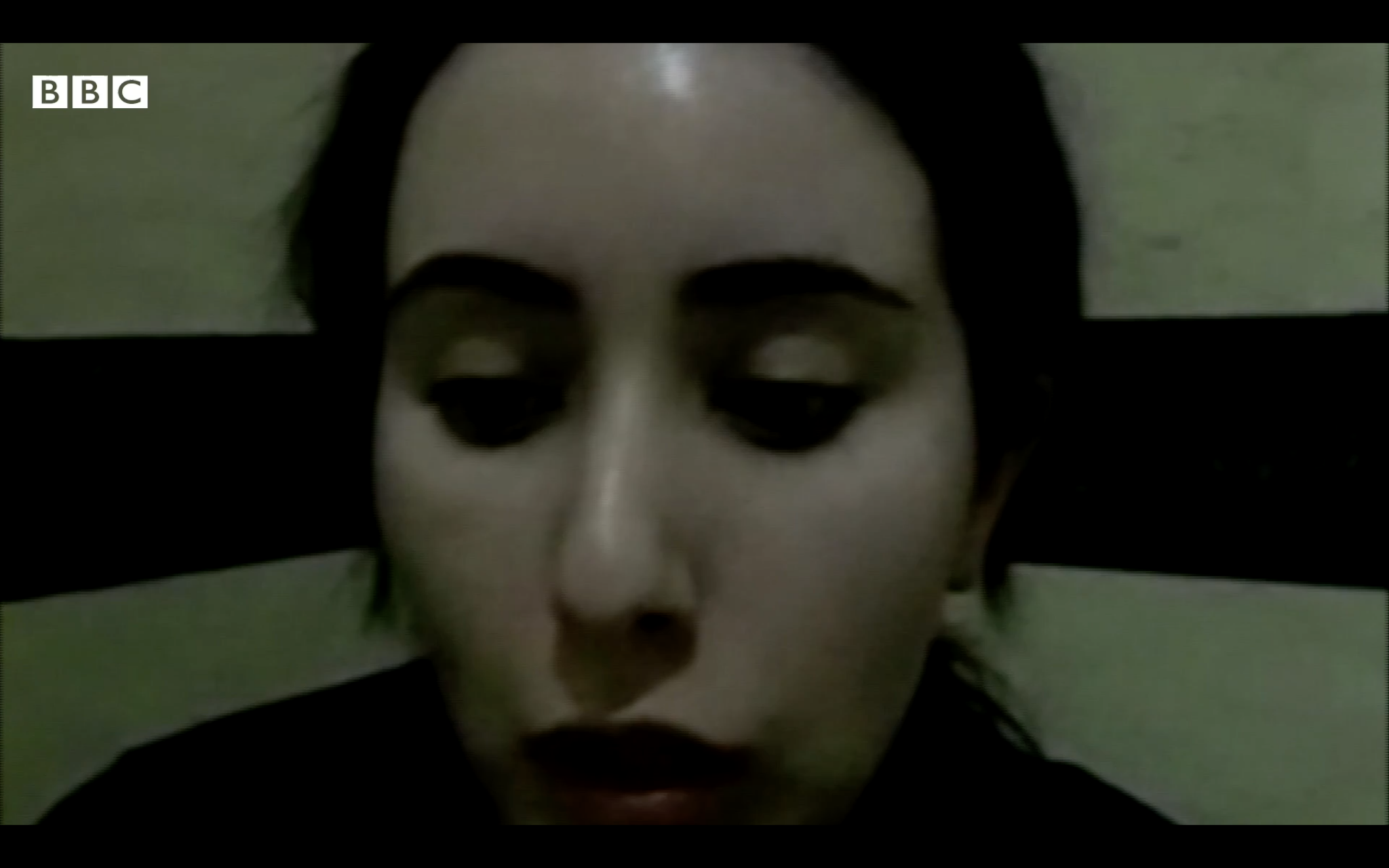The woman who tried to help Sheikh Mohammed’s daughter escape her oppressive family agonised over what to do with the footage
Louise Callaghan
February 21, 2021, The Times
Tiina Jauhiainen was on holiday at her parents’ house in northern Finland in the spring of 2019 when her phone lit up with a message from a stranger.
The person said they had a message from Princess Latifa Al Maktoum of Dubai, Jauhiainen’s best friend. It was a heart-stopping moment. A year earlier, Jauhiainen, an ice-blonde capoeira instructor then living in the United Arab Emirates (UAE), had been catapulted into a surreal international kidnapping drama after helping Latifa, now 35, to attempt an escape from Dubai.
They had become friends after the princess hired Jauhiainen as a trainer, and they hatched a plan to help Latifa escape the iron control of her father, Sheikh Mohammed Al Maktoum, the ruler of Dubai.
Their attempt to flee across the Indian Ocean ended when Indian and Emirati special forces intercepted them off the coast of Goa. The last time Jauhiainen had seen her friend, she was being dragged off the ship.
Now, with one message, she was back.
“I immediately understood that it was her — really, it was crazy,” Jauhiainen, 44, told me last week. “I couldn’t sleep that night. I was just thinking: ‘Oh, my gosh, oh, my gosh, she really contacted me.’ Because at that point, obviously, I didn’t know where she was, and if she was alive.”
Through smuggled notes she learnt Latifa had been imprisoned in a villa in Dubai. A person — Jauhiainen asked that the details be kept vague — carried messages between them, and eventually they were able to get a phone in so that Latifa could record some video footage.

Last week those videos were shown on the BBC’s Panorama, causing shock around the world. In them Latifa recounts how she fought the soldiers taking her off the boat, biting one Emirati commando’s arm until he screamed, and was then tranquillised and put on a private jet. She described the villa as having barred windows and a police guard. Emirati officials have denied Latifa’s claims and say she is at home with her family.
The decision to release the films was not an easy one. A year after the messages began, they stopped just as abruptly. For months Jauhiainen and her fellow campaigners David Haigh, a British human rights lawyer, and Marcus Essabri, Latifa’s cousin, agonised over whether to go public. “We obviously met, the three of us, several times to discuss it. And we looked at different options. And again, we said, ‘OK, let’s review the situation after another three months,’” Jauhiainen said.
“And then finally we thought, ‘We haven’t heard from her — her situation could have got much worse.’ So we thought, ‘No, we have to do something.’”
The extraordinary story really began in 2000, when Latifa’s older sister Shamsa — then a horse-mad 18-year-old — escaped from the family’s Longcross estate in Surrey. In 2019 I met Shamsa’s cousin Essabri in London, where he showed me a letter she had sent him in 1999, in which she described her dreams of freedom in girlish, rounded blue ballpoint. Those dreams didn’t last long. A few weeks after her escape, she was kidnapped from a street in Cambridge by agents sent by her father.
At 16, Latifa tried to escape for the first time and got as far as the Emirati border with Oman. According to a video recorded prior to her escape attempt and released in 2018, after her capture, she was brutally abused and beaten for three years. When she was released from jail, at 19, she still wasn’t free. She was unable to leave Dubai, or do anything apart from eat, watch TV and shop, without the approval of her family. She took up skydiving, which gave her a taste of freedom.
Her life changed when she hired Jauhiainen. Along with Hervé Jaubert, a Frenchman who claimed to have a background in espionage, the two women formed an escape plan.

After the special forces raid, Jauhiainen was taken to a Dubai jail, where she was interrogated for two weeks before being sent back to Finland and barred from ever returning. When the story began to emerge, I called a contact close to the Emirati royal court, expecting him to laugh it off. No, he said, it really happened.
I booked a flight to northern Finland. Jauhiainen came to meet me at a lakeside restaurant. She told me that all Latifa had ever wanted was a quiet, simple life. “She would seek asylum and then find work,” Jauhiainen said.
She hasn’t stopped trying to help her friend since then. When we spoke last week, she was exhausted from a full day of TV interviews. Having released the videos, she is racked with fear that Latifa’s family could hurt her — or the person who helped pass the messages — as a punishment.
“At this point, I’m hoping it was the right decision that will eventually help us get her free,” she said. “Because otherwise, yeah, I don’t want to regret that we’ve done something to actually make her situation worse.”
It’s still unclear whether their plan has worked. Last week Dominic Raab, the foreign secretary, said the footage was “deeply troubling”, and the UN is preparing to raise the case with the UAE. Yet both were already well aware of the tale of the missing princesses.
The UAE is, in the official parlance, a vital strategic partner to the UK. Latifa’s father is a leading racehorse breeder and, through his Godolphin stables, owns swathes of Newmarket in Suffolk. He has previously given promising yearlings to the Queen, a close friend.
Many Emiratis I’ve spoken to just don’t see why Latifa’s story is such a big deal. Their own fawning press has not picked up the story of the missing princesses. One prominent Emirati, when I asked him about Latifa, looked at me with incredulity.
“Women run away all the time,” he said. “All over the world. They run away, and they’re brought back.” It was, the inevitable comment came, a family matter. Did we British have no respect for the sanctity of family life — particularly in the royal family? I told him to watch The Crown.
